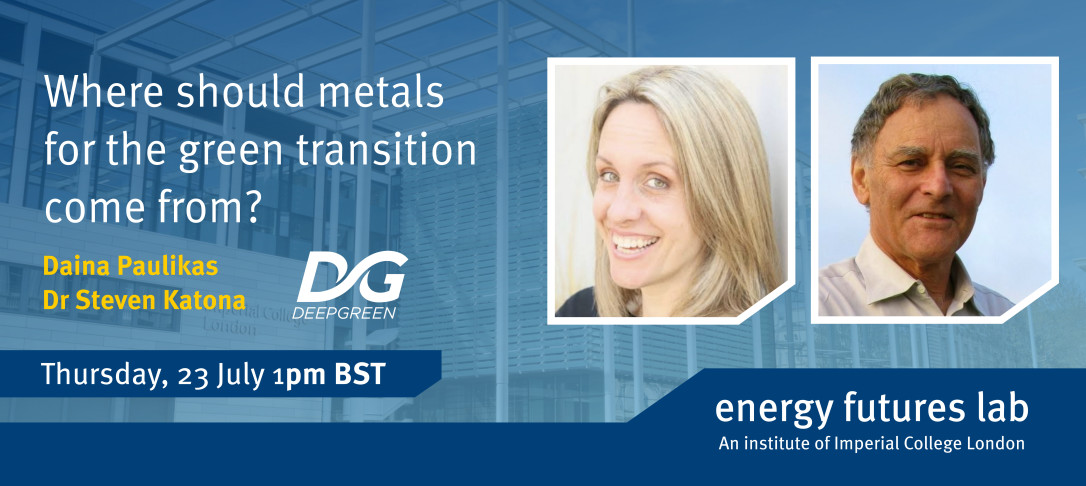
Note: To facilitate the open exchange of views and ideas, Energy Futures Lab regularly invites external speakers to present their work. The institute does not endorse the contents of these webinars. In the spirit of constructive debate, audience members are invited to participate in a Q&A and challenge the research presented.
Abstract
Biographies
Daina Paulikas
Daina Paulikas is an independent researcher and multidisciplinary consultant. With Boston Consulting Group training, she has independently consulted for the World Bank, city governments, Google, and many startups and non-profits. She also co-founded a logistics tech startup and was a defense systems engineer for Northrop Grumman. Daina holds an MSc in Econometrics from the London School of Economics, an MBA from the Harvard Business School, and a BS in Physics from Caltech.
Dr Steven Katona
Dr Katona is President Emeritus of the College of the Atlantic where has taught for over 30 years. Dr Katona is also Co-founder and Managing Director of Conservation International’s Ocean Health Index which assesses major pressures affecting the ocean and their impacts on its species and habitats, and for humanity.
About DeepGreen
DeepGreen Metals Inc. is a polymetallic nodules exploration and development company on a dual-mission: (1) supply metals for the green transition with the least possible negative environmental and social impact and (2) accelerate the transition to a circular metal economy. DeepGreen has developed a process for producing battery metals from polymetallic nodules with near-zero solid waste, eliminating the need for tailings dams on land.
About Energy Futures Lab
Energy Futures Lab is one of six Global Institutes at Imperial College London. The institute was established to address global energy challenges by identifying and leading new opportunities to serve industry, government and society at large through high quality research, evidence and advocacy for positive change. The institute aims to promote energy innovation and advance systemic solutions for a sustainable energy future by bringing together the science, engineering and policy expertise at Imperial and fostering collaboration with a wide variety of external partners. The Energy Futures Lab daytime seminars are delivered by staff and students from across the College and further afield.